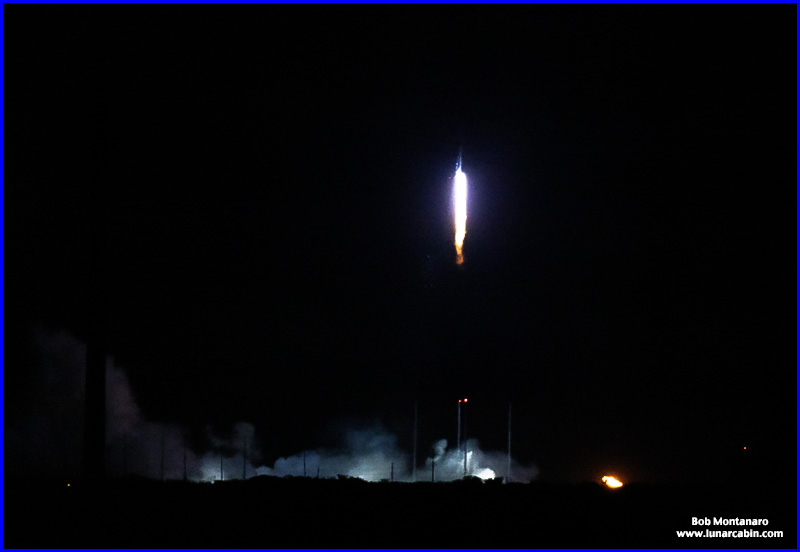 |
|
Good Luck, Have Fun (Terran 1) 22 March 2023 |
Space Launch Complex 16 Cape Canaveral Space Force Station |
| The world's first 3-D printed rocket lifted off on its inaugural flight at 11:25 p.m. on 22 March 2023 from Space Launch Complex 16 at Cape Canaveral Space Force Station. Fueled by liquid methane and liquid oxygen, Relativity Space's Terran 1 rocket flew nominally through stage separation when the second stage engine suffered an anomaly causing the second stage to fail to reach orbit. The rocket was not carrying a payload; the flight test was designed to collect as much data as possible on the vehicle's performance. | |
ON-PAD ABORT - 11 MARCH 2023 |
|
 |
|
| The first Terran 1 launch attempt at 2:42 p.m. on 11 March 2023 ended in an on-pad abort when the engines ignited and then shutdown. Relativity Space stated that a problem was detected in the stage separation automation that resulted in the abort at T-.5 seconds. A second attempt at 4:00 p.m. led to a scrub at T-45 seconds when low fuel pressure was registered in the second stage. | |
LAUNCH - 20 MARCH 2023 |
|
 |
|
 |
|
The flare stack, seen here in the foreground, is used to burn off excess fuel. |
|
 |
|
 |
|
 |
|
 |
|
 |
|
 |
|
 |
|
The arc ends abruptly with the failure of the second stage engine. |
|
EXCERPTS FROM RELATIVITY SPACE MEDIA RELEASES |
|
As a next generation launch vehicle, Terran 1 is designed for the future of constellation deployment and resupply. Its ground-breaking, unique and software-driven architecture is capable of accommodating satellite customers’ evolving needs, while also providing the most agile and affordable launch service on the market. Designed and printed in the USA, Terran 1 is the most innovative product to emerge from the aerospace manufacturing industry since the dawn of privatization of space 20 years ago. Our engines, Aeon 1, Aeon R and Aeon Vac, are 3D-printed, enhancing mission reliability by reducing part count in engine combustion chambers, igniters, turbopumps, reaction control thrusters, and vehicle pressurization systems. All Aeon engines use propellants of the future, liquid oxygen + liquid natural gas, which are not only the best for rocket propulsion, but also the easiest to eventually make on Mars. To date, Aeon has completed 2,000+ test fires. RIGHT: The Terran 1 rocket. Image Credit: Relativity Space |
 |
All contents copyright Lunar Cabin |
|